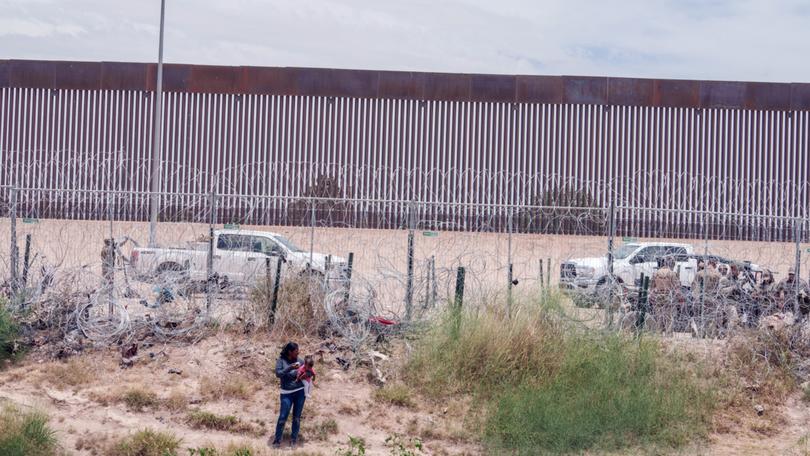On immigration, Kamala Harris and the Democrats walk a delicate — and harder — line
Kamala Harris sought to strike a delicate balance on the issue of immigration at the Democratic National Convention. But the overall message has been decidedly more hardline than it has been in decades.

When Vice President Kamala Harris accepted the Democratic presidential nomination last week at her party’s convention in Chicago, she sought to strike a delicate balance on the issue of immigration, promising to approach enforcement and security at the nation’s southern border as the prosecutor she once was, without abandoning the country’s values.
It was the kind of equilibrium on the issue that Democrats had striven for all week — a levelling between calls for more officers and judges at the country’s southern border and a system that treats people humanely, between promises to uphold the law and rebukes of the fearmongering over “the other” that has permeated the national immigration debate.
But the overall message on immigration from the Democratic Party in the past week has been decidedly more hardline than it has been in decades.
Sign up to The Nightly's newsletters.
Get the first look at the digital newspaper, curated daily stories and breaking headlines delivered to your inbox.
By continuing you agree to our Terms and Privacy Policy.The shift reflects just how much of a political vulnerability the issue remains for Harris and down-ballot Democratic candidates in November, as many voters have come to see the challenges at the southern border as a top concern, and a small but growing minority of Republicans and independents want to curb pathways into the country.
The most common refrain from the stage in Chicago was a denunciation of former President Donald Trump and Republicans for tanking a bipartisan border security deal this year that, as former President Barack Obama said Tuesday, was “written in part by one of the most conservative Republicans in Congress.”
There were little to no condemnations of Trump’s immigration policies or pledges to reverse them.
There were vague calls to expand legal pathways to citizenship but no mention of the roughly 11 million immigrants living in the country illegally who would stand to benefit from the move, many of whom have been working and building families in the United States for years.
The immigrants known as Dreamers, who were brought to the country illegally as children and who have become leaders in a national push for legal status, were absent from the podium.
Some Democrats and pollsters believe the stricter stance will help Harris in critical swing states like Arizona and Michigan, where immigration has been front and centre for many independent voters.
“She is a border state prosecutor, and I think Democrats will be wise to remind voters of that,” said Matt Bennett, the executive vice president for public affairs at Third Way, a centrist Democratic advocacy group.
This article originally appeared in The New York Times.
© 2024 The New York Times Company
Originally published on The New York Times
